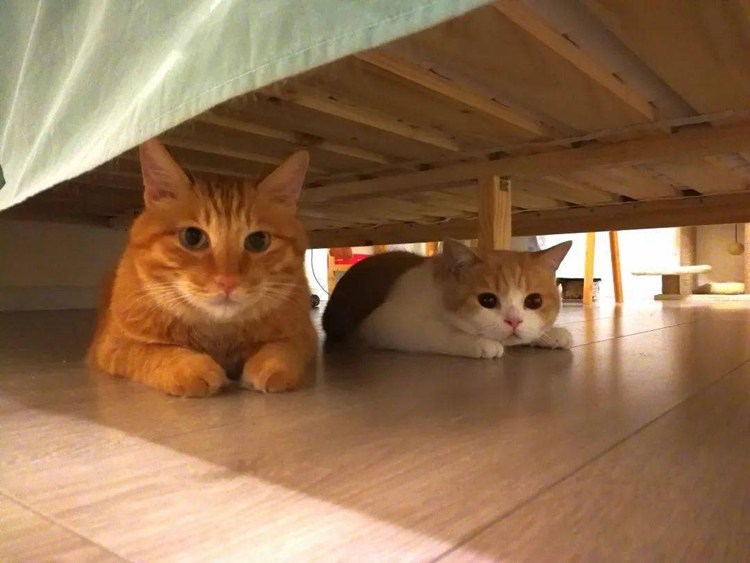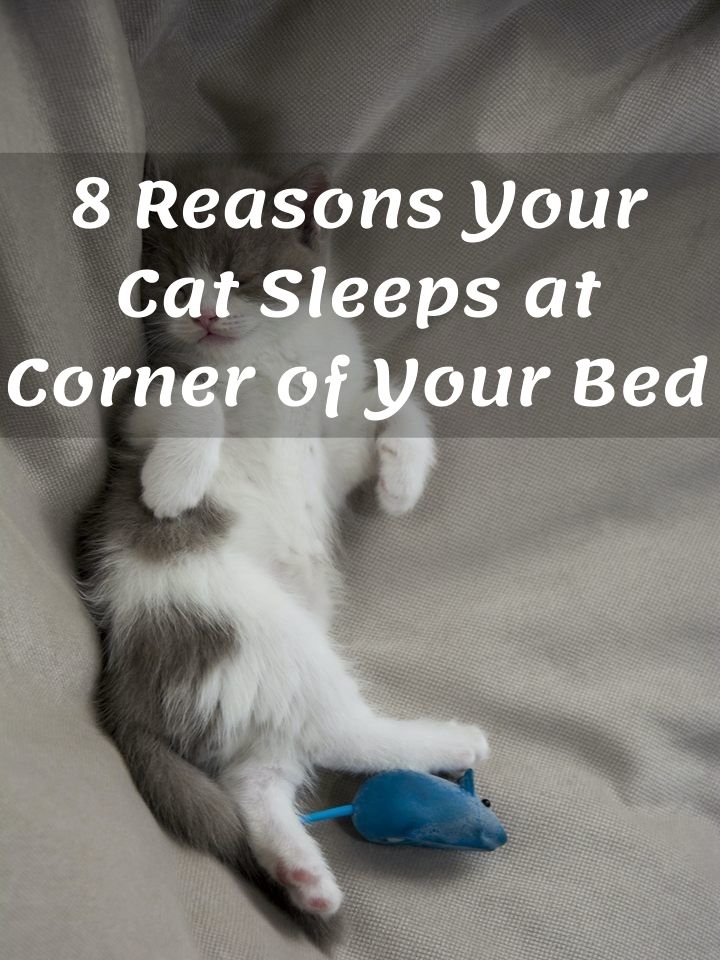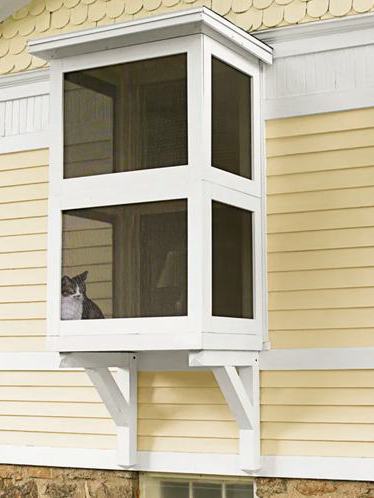Does your feline friend hide frequently? While cats are self-reliant creatures who take pleasure in having their own space from time to time, hiding more often than usual is a cause for concern that must be dealt with expeditiously.
If your cat hides under the bed, it could be due to various reasons. For instance, your furry friend could be feeling threatened or agitated. Or, perhaps they are facing a difficult situation they prefer to hide from.
Hiding is common among cats since they are creatures who enjoy their own company and value independence. Also, at times the issue is temporary and everything will go back to normal after a few days.
However, if your cat hides for a prolonged time, it could be due to a permanent problem that you need to figure out to ensure your cat remains healthy and happy. In this post, we have outlined reasons why your cat hides under the bed and effective solutions to eliminate the problem.
Table of Contents
Why Your Cat Hides Under The Bed
If your cat hides under the bed, finding the root cause of the problem is essential. That way, you’ll be able to solve the issue. Below are reasons why cats hide under the bed:
Safety Reasons
Cats hide under the bed since the space is enclosed, private and offers safety which is one of the major components of feline wellness.
- Your Cat is Scared Of Bully Dogs and Cats in your neighborhood
Cats are both predators and prey but as soon as they feel threatened, they’ll retreat to a safe space. If they are constantly bullied by a pesky dog in the neighborhood, they will find a secure space that offers comfort. Or, perhaps, your cat is feeling threatened since you adopted another cat.
You can be on the lookout to know whether there is tension whenever the two cats are around each other.
Solution
If your cat is feeling agitated due to a bully dog or cat in the neighborhood, you can close the curtains whenever they pass by to eliminate or gradually reduce the fear caused by pesky cats or dogs.
On the flip side, if your cat is feeling threatened by another cat in the house, it’s best to provide both cats with their resources to avoid tension. Also, be on the lookout since the cats could be blocking each other’s access to basic amenities such as food, and water.
Anxiety
Typically, a timid cat will hide whenever it feels anxious to find a safe space that’s peaceful.
Simple changes and loud noises
Before introducing your cat to anything new, you need to know that the process can be overwhelming. Cats are intimidated by changes—just like humans! Your cat could perceive something as simple as new furniture as a threat.
On the other hand, loud noises scare cats! Your cat’s acute hearing makes sounds louder than they actually are. Therefore, your cat could seek refuge from the loud noises under your bed.
A baby’s cries could also be too overwhelming for cats, making them retreat to a safe space that allows them to enjoy peace and silence.
Your Cat is Scared Of Strangers
Lastly, your furry friend might dislike strangers and whenever they hear the doorbell, they flee to a safe space that allows them to be alone.
Solution
If your cat is scared of loud noises, it’s best to ensure your home is quiet. That way, your cat won’t feel agitated. Also, if your cat is scared of new furniture or a new baby, you can patiently show the cat that there’s nothing to worry about.
Whenever your cat makes an effort to face its fears, praise and encourage them to be braver. You can give them treats to show appreciation.
If your cat is scared of strangers, advise visitors not to approach your cat since it is intimidated by unfamiliarity. Furthermore, don’t scold your cat for being shy. Instead, give it time to adjust to meeting new people and sooner or later, it will master confidence.
You can also contact your veterinarian to prescribe anti-anxiety medication if the problem is severe.
Illness
If your cat is sick, it will hide under your bed since it’s vulnerable. You need to be vigilant about your cat’s behaviour; if it has been vomiting and hiding under the bed for a long time then it’s a cause for concern. Be on the lookout for any symptoms of illnesses to ensure you deal with the problem as soon as possible.
Solution
If you want your cat to stop hiding under your bed and notice symptoms of feline illnesses, it’s best to consult your veterinarian to solve the issue permanently.
Comfort
Sometimes, finding your cat under your bed is not a cause for concern. Typically, cats nap for 15 to 20 hours a day! If your cat chooses to sleep under your bed, it’s just because they feel comfortable and safe.
Solution
If you don't want your cat napping under your bed, you can purchase a comfortable cat bed and train your cat to take naps on its new bed.
How To Keep Cats From Hiding Under Your Bed
Suppose your cat hides under your bed, most of the reasons arise from fear. Therefore, to get rid of the problem, you need to adapt to various ways that allows your cat to remain calm and stress-free
Call Your Cat Using an Understanding and Calm Voice
If your cat is hiding under your bed, don’t scold it! Also, don’t drag it out since you’ll scare it, heightening its anxiety. Since cats hide under the bed after receiving a threat, you’ll only make it more fearful by scolding it. Instead, allow your cat to feel safe by calling it out with a soft and understanding voice. Using this approach allows it to feel safe around you and move freely.
Offer Treats or Food
Does your cat enjoy treats and food? To ensure your cat won’t hide under your bed, you can bribe it with treats and food. That way, it can associate not staying under the bed with treats and food, moving freely around the house to earn rewards. You can also try a toy instead if your cat is a picky eater.
Make the environment relaxing
Some cats are scared of loud noises. To guarantee they don’t hide under the bed, you can make the environment relaxing. For instance, you can make sure the house is free from noise that could trigger your cat’s anxiety. Also, you can offer your cat it’s own room to seek refuge whenever it needs a private space.
Build a cat hideaway
If your cat values its free time, you can make a hideaway for your cat using a box and an old t-shirt. Cats are fond of small spaces that are secure and enclosed. Hiding spaces are a basic need for cats since they need to feel safe.
Also, if you have more cats, you need to make enough hideaways to get rid of unnecessary tension that might heighten your cats’ anxiety levels.
Monitor Your Cat’s Behavior
You need to monitor your cat’s behaviour to ensure it doesn’t hide under the bed. If there’s a bully cat or dog in your neighborhood, you need to be aware. Also, if you notice signs and symptoms of an illness, it’s best to contact your veterinarian.
Your cat’s behavior will give you solid clues to figure out where the issues lie.
Train Your Cat to be confident
You can start by allowing your cat to warm up to visitors. If your cat is timid, you can praise it each time it makes a positive improvement. Cats are territorial species, and once they spot a new person they are inclined to feel threatened.
However, you can keep your cat from hiding under your bed by boosting its confidence. For instance, you can get your cat out by using a toy, making it feel more like a predator.
Consult Your Vet
If you are worried that your cat spends too much time under your bed, you can visit your veterinarian to keep your mind at ease. Furthermore, they can offer effective solutions to the problem.
Final Words
Cats are independent species who value alone time unlike dogs. Therefore, if your cat is hiding under the bed, the reason is relative depending on your cat. While some cats enjoy their own company, others might hide under the bed due to an illness or anxiety. It’s best to focus on your cat’s behaviour to find an effective solution to the problem.
Furthermore, consult your Veterinarian to ensure your furry bundle of joy gets the help it needs to remain healthy and joyful.














Ask Me Anything